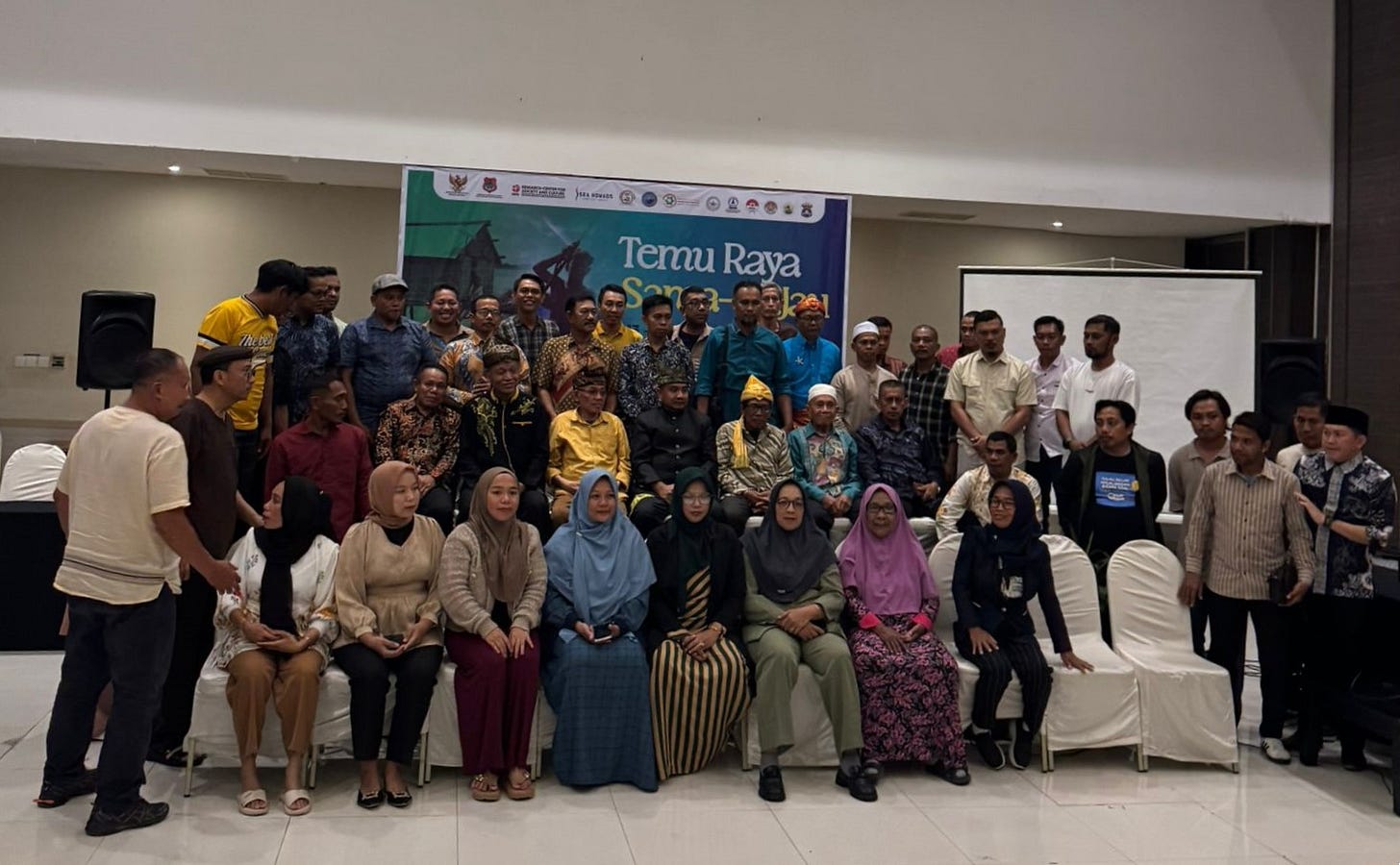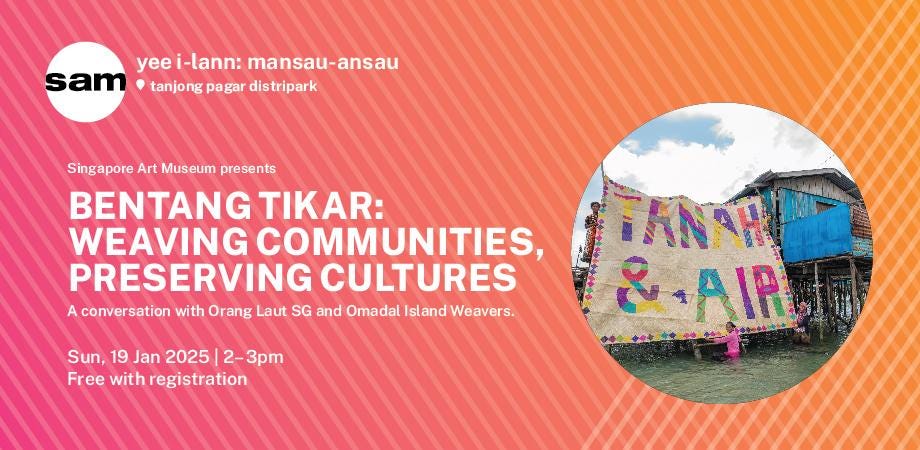2024 has been a crazy, eventful year. The garden spruced to life, our advocacy bore some fruit, and our tours, talks, and programmes were afoot. We want to say a big, big ‘Thank you!’ to our supporters and friends, new and old, for the enthusiasm and support that keeps our sampan afloat. <333
This year, our final adventure led us to Luwuk in Central Sulawesi for the inaugural Temu Raya Sama-Bajau conference. Symbolically aligning with the dates of the Lipu Celebes Festival, it was both a celebration for and a commitment to the rich maritime heritage that the Sama-Bajau community holds. The festival opened with the arrival of two sandeq boats accompanied by over a hundred lepa boats. The sandeq sailed from the shores of Marjene, visiting thirteen Bajau communities before ending at the Bay of Lalong, honouring the sea pathways their ancestors took.
As festivities continued, we were warmly welcomed by the people of Jaya Bakti, considered to be the most densely-populated Sama-Bajau village in the world. They were previously displaced by government projects constructing cargo ports, forcing them to relocate to the opposite side of the island. For that day, the locals reclaimed the space along the waters with their colourful banner-decorated lepa. Having gained world recognition for their freediving skills, it was exciting getting to witness a breath-holding competition between the locals!
The conference gathered community representatives from over 14 Indonesian provinces including South Kalimantan, East Kalimantan, Central Sulawesi, South Sulawesi, North Sulawesi, Maluku, West Java, Central Java, East Nusa Tenggara, and West Nusa Tenggara, as well as community representatives from Malaysia and Philippines. We are so honoured to have been invited alongside distinguished international delegates like Associate Professor Dr. Narumon Arunothai, who has been researching and advocating for Indigenous communities and their knowledge systems for many years.
Discussions explored the varied experiences and challenges faced by Sama-Bajau communities across different regions, including restricted access to fishing areas due to conservation policies, economic hardship from fishing tool bans, and the risk of illegal practices. Despite this, they lead coral reef conservation efforts, though often without government recognition. These conversations serve as a foundation for collaboration among various stakeholders, including policymakers, conservationists, and community leaders. Ultimately, their goals are to ensure the sustainable preservation of marine resources integral to the Sama-Bajau way of life while simultaneously advocating for their cultural traditions to be formally recognised as intangible heritage on a regional scale within Southeast Asia.

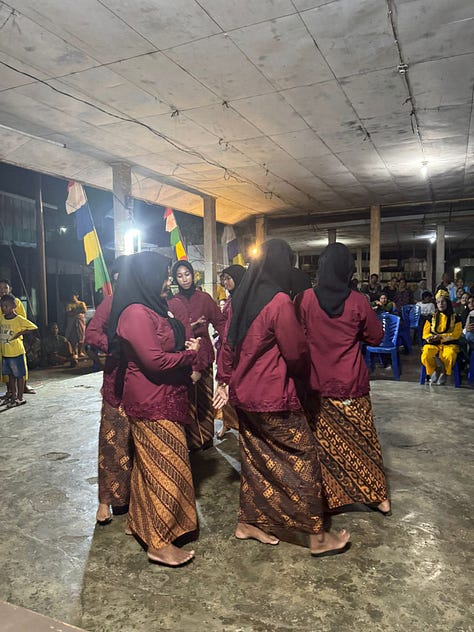
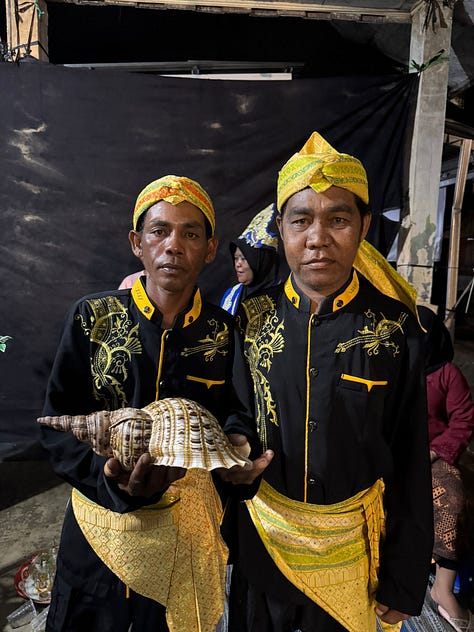
Even the terms used to identify them(selves) were examined; the Sama-Bajau, known to outsiders as Bajau or Bajo, identify themselves as Sama with variations like Same in West Nusa Tenggara. By understanding their geographical distribution throughout Southeast Asia, we can see cultural links between different regions that formed via sea. An oral history performed at Jaya Bakti narrates the migration of the Sama-Bajau ethnic group, believed to have originated in Johor, Malaysia. The legend tells of a princess who went missing, prompting villagers to search for her. Failing to find her, they felt too ashamed to return to their homeland and instead dispersed across various regions, eventually forming the Sama-Bajau communities known today.
This story varies by region, and although the exact origins of the Sama-Bajau remain unclear, these connections reveal shared history and traditions that go beyond national boundaries. It is then important to them that they unite as one Sama people. For the Sama-Bajau, the sea is more than a path; it is their "home," "garden," and "life." It provides sustenance, serves as a spiritual connection, and shapes their identity from birth to death. Many Sama-Bajau describe the sea poetically: “The sea is my mat; the waves are my pillow.” In true santai fashion, we found ourselves swapping stories after dinner as if we were catching up with long-lost relatives - sparking excitement when we stumbled upon similar terms in our languages.
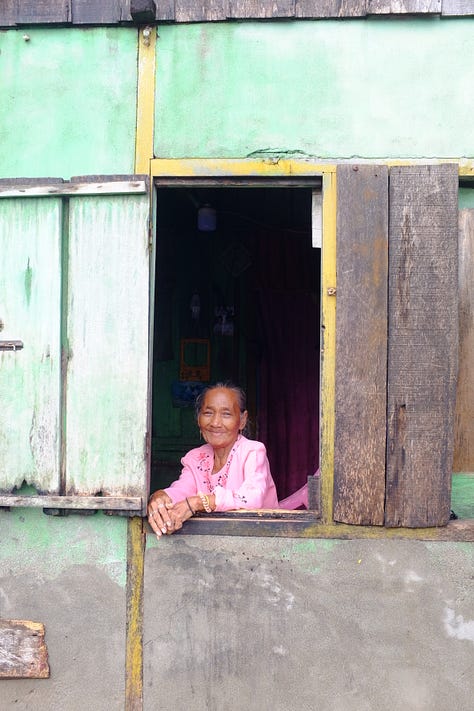
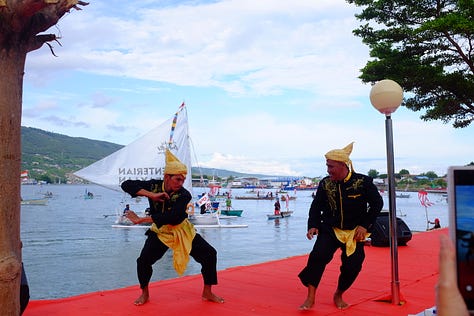
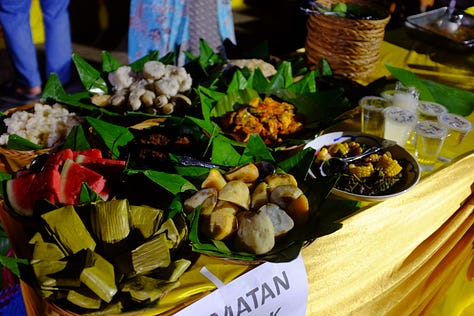
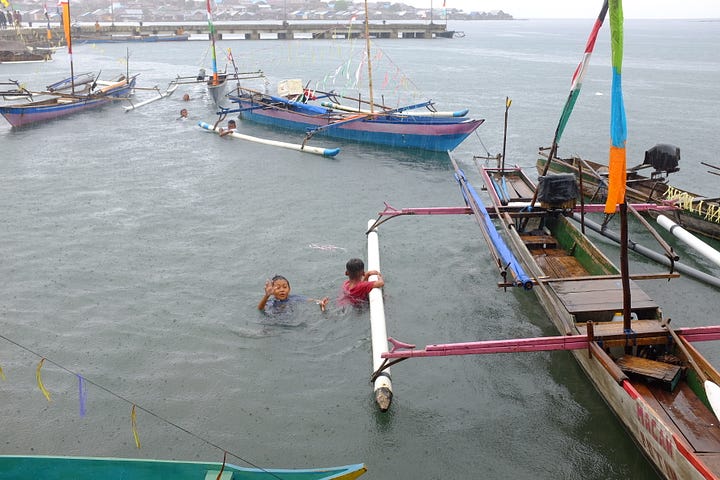
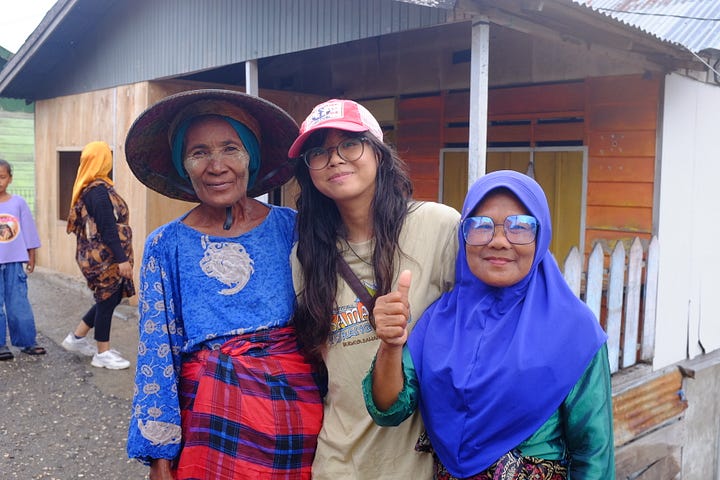
The congress concluded with the signing of a Memorandum of Understanding (MOU) among Sama-Bajau representatives and the Indonesian Ministry of Culture's Cultural Development and Utilisation division. The declaration emphasised the following goals:
Recognition of the Sama-Bajau as key contributors to Indonesia’s maritime culture
Promotion of sustainable marine resource management based on traditional practices
Strengthening regional collaboration to protect Sama-Bajau heritage across Southeast Asia
Back in Singapore, here’s what we’ve been up to in December as part of our outreach and engagement efforts:
We met students at Dulwich College
We held a talk for over 140 Dulwich College students on the importance of oral histories and ethical research practices for interviewing their friends. The students were exceptionally respectful and attentive, actively partaking in the presentation and the post-presentation Q&A afterwards. We are looking forward to the next school engagements lined up next year!
We met our volunteers and friends – Santai di Pantai
Thank you to everyone who joined us at Tanah dan Air for Santai di Pantai! It was our first time hosting such a gathering, but it certainly won’t be our last. Seeing both familiar and new faces come together, connecting over shared interests and experiences, made our hearts so full. We are also grateful for the generous offers to volunteer or collaborate with our team. As a ground-up organisation, your support means the world to us - we are excited to start 2025 with new projects and opportunities to journey together with you!
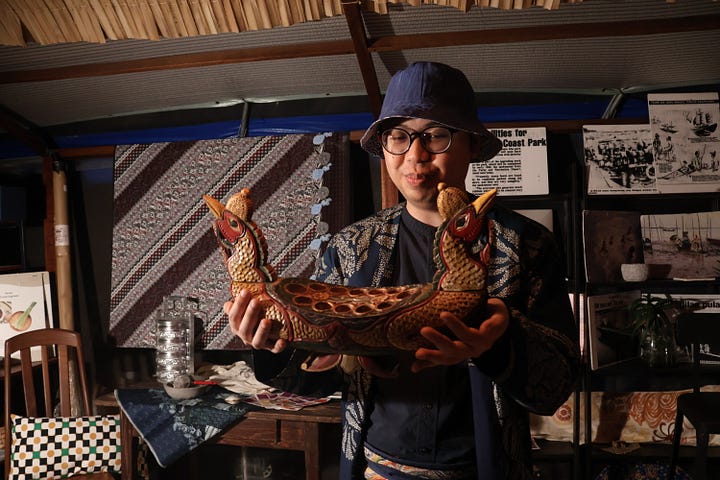
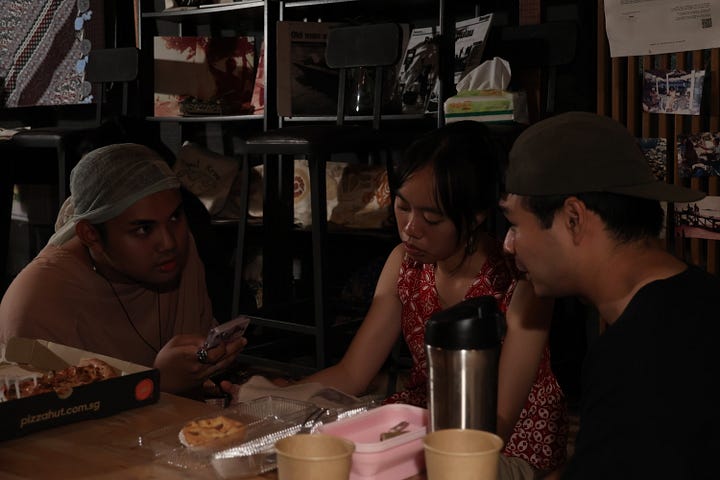
We participated in a Jong Regatta in Singapore!
To end the year, we participated in Pesta Sukan Jong Regatta 2024, a three-day event led by Cik Rahmah and Cik Fawzi, a former Pulau Sekijang islander. Jong Racers from Johor, Galeri Jong, and Indonesia joined the race alongside teams from Singapore.
The Orang Laut SG team met a couple of friends and competed as part of Team Super Buntal, with friends we met during the Jong Clinic on the Regatta’s first day, some of whom were descendants of the Orang Brani. During the Jong Clinic, Cik Fawzi shared insights into the history, culture and technique of Jong Racing.
For the weekend, the shores of East Coast Beach were dotted with the vibrant colours of the handcrafted sailboats. Passers-by were drawn to the sight of the unmanned sailboats gliding effortlessly across the water and stopped to learn about the boats or to share their own memories of Jong races, recalling a time when they were a popular pastime in Singapore.
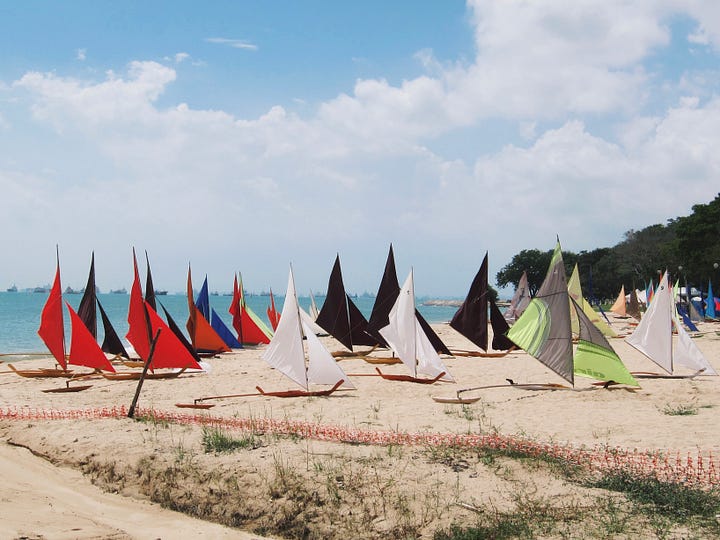

Jong Racing is a traditional maritime sport that connects coastal communities across Singapore, Malaysia, and beyond. For us, it is a meaningful reminder of our shared island heritage and identity across the Nusantara. It was a huge privilege to be a part of the sport’s resurgence in Singapore and learn from skilled racers in the region, and we will be practising for next year’s competition :D
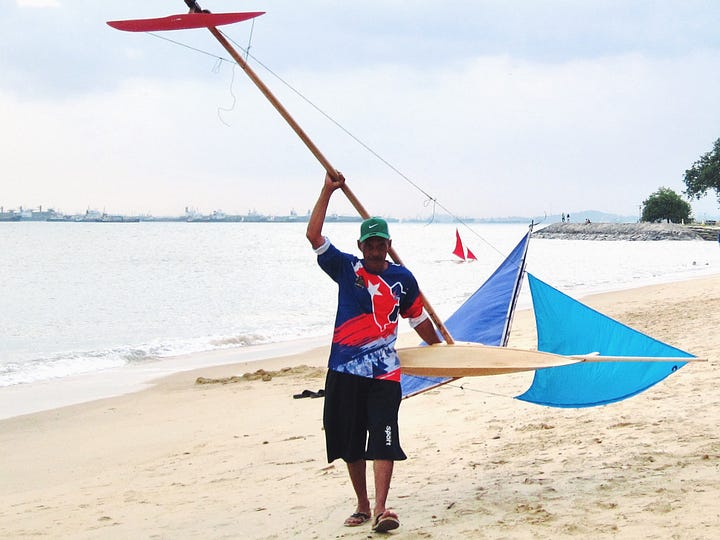
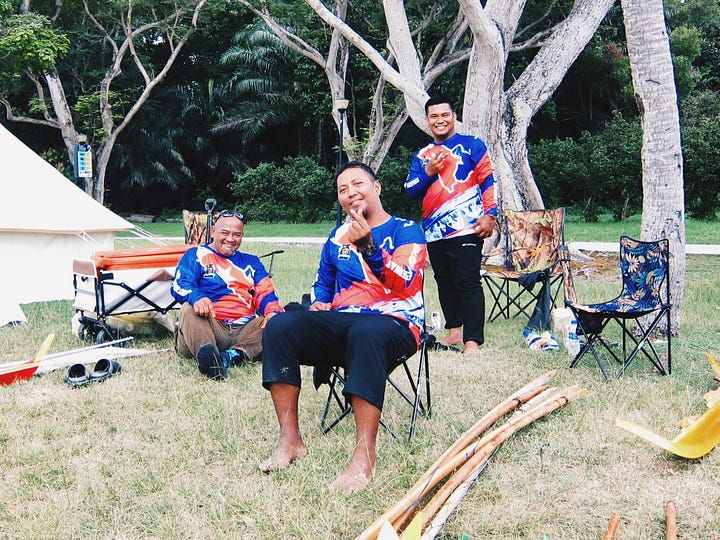
We set up a support page - Ko-Fi!
We finally got the courage to debut our Ko-Fi page! Since 2020, Orang Laut SG has been self-sustaining as a non-profit, ground-up project. As we shoot for the stars in 2025, we want to ask for our followers' support to raise funds for our largest project yet - Hari Orang Pulau! We are looking to conduct tours and talks with schools or companies to raise funds for a festival for the community. Proceeds from December 2024 to June 2025 will go directly to Hari Orang Pulau 2025.
Our Ko-Fi page also accepts public donations of any amount. You may also donate directly to Orang Laut SG on a one-time or monthly basis. Our lean team appreciates all the support we can get!
We are also excited to share the details for two of our upcoming events in the new year. On 17 Jan, we will be hosting the second session of the Nio Series, inspired by the Tempurung Nio (Coconut Shell), the hardy layer protecting the fruit’s sweet flesh and water. For this session, we have invited cultural advocates who similarly present a resilient front to fight for the causes they care about to explore how change is created, particularly through art as advocacy.
Our speakers, Hafiz Rashid, a specialist in the history and culture of the Nusantara region, and Jade Johnson, of Amis (Indigenous Taiwanese) descent, will share how traditional arts and crafts carry community stories that often go unwritten and unrecognised in official historical narratives.
Inspired by the ground-up nature of these arts to amplify community voices and carry on narratives, Jade will host a weaving workshop, where you can try your hand at traditional Amis techniques. She will be joined by Normini Abdul Aziz, a Pulau Brani descendant who has been practising batik painting after learning the craft from an expert. Normini will share her experiences and relationship with the craft, guiding you to express yourself by creating your own batik works with coastal motifs.
Registration will be open soon, so do keep a lookout for the details on our Instagram and Telegram Channel!
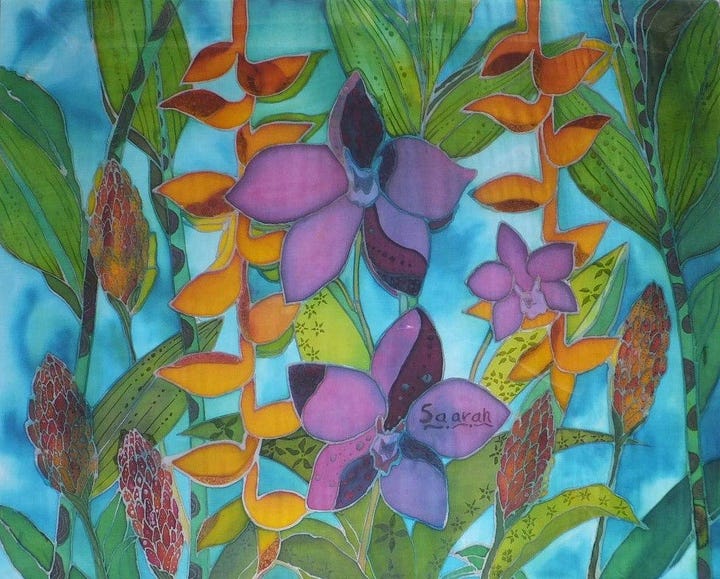
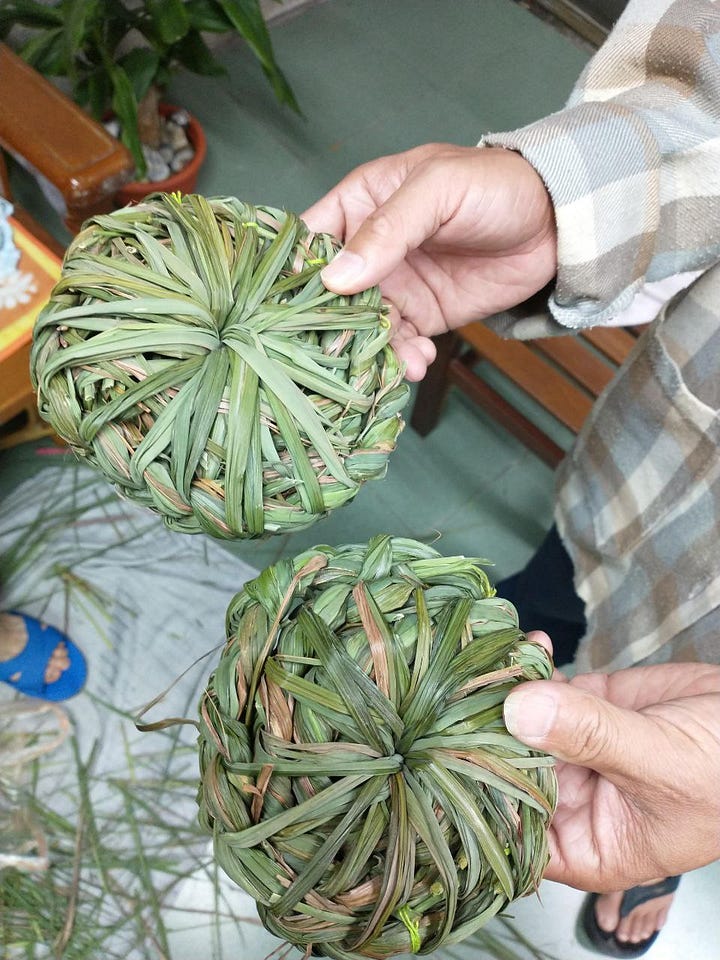
On 19 Jan, we will be joining Tepo weavers from Pulau Omadal for a panel discussion as part of Bentang Tikar: Weaving Communities, Preserving Cultures, at the Singapore Museum. Tepo weaving is a traditional craft of the Bajau Sama DiLaut culture of Pulau Omadal and has, in recent years, become a means of sustainable income and for the community to preserve their rich cultural heritage.
Bentang Tikar invites participants to learn about the intricate maritime patterns and motifs, as well as how unity was fostered among various Bajau communities through the Tikar Reben project, a ground-up project led by Sabahan artist Yee I-Lann. The panel will also discuss similarities and differences between Orang Laut and Bajau Laut communities and how we can support marginalised groups and the conservation of their invaluable cultural heritage. We hope to see you there!
(The Nio Series is brought to you by Orang Laut SG and supported by the National Youth Council and National Heritage Board Young ChangeMakers - Youth Heritage Kickstarter Fund (YCM-YHKF). Any material, information or views expressed are those of the organisers and do not necessarily reflect the official policy or position of any other supporting organisation.)
Thank you all for making 2024 a meaningful one. We look forward to meeting all of you next year!
Best wishes and happy new year,
Firdaus & The Orang Laut SG Team







